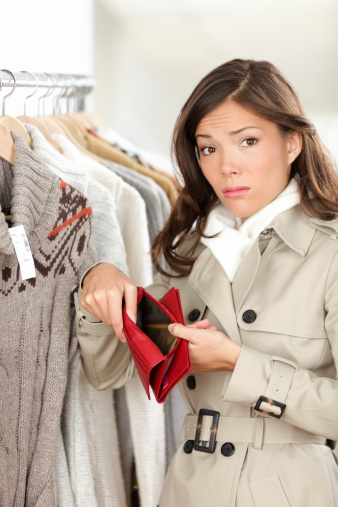With the winter weather bringing nothing but cold temperatures, gray skies and more and more snow, the appeal of the brightly lit and fully stocked mall may be great. Buying that new purse or that pair of shoes that will be perfect for showing off your first pedicure of spring probably makes you feel better when the winter blahs are getting you down. Shopping to give yourself a lift is not always a bad thing, but be aware of the risks. Emotional shopping can be a slippery slope that leads to a behavioral addiction.
Shopping, Addiction and Impulse Control
Shopping or buying can become a behavior that resembles an addiction in some people. Addiction to substances begins with using a substance and getting a high. Motivations for using are often emotional. In other words, you may use a drug or drink because it relieves stress, makes you feel happy, or helps you to reduce anxiety and nervousness. The same can be true of shopping. Other similarities between compulsive shopping and addiction include cravings, feelings of withdrawal, tolerance and the inability to stop in spite of harmful consequences.
Addiction specialists and experts in psychology generally do not consider compulsive shopping to be a true addiction. However, this lack of classification does not mean that the behavior is not serious or that it cannot be harmful. Experts classify compulsive shopping as an impulse control disorder. What characterizes these disorders is that the person struggling with them cannot resist the impulse to engage in a particular activity, in spite of the negative consequences. With shopping, those consequences typically include wrecked personal finances.
Shopping With Your Emotions
Just because experts do not call compulsive shopping a true addiction does not mean that you should not be aware of the risks associated with this behavior. Any compulsive behavior can get out of control and cause harm. The root of most of these disorders is found in emotions. Some people shop simply to get what they need. Most of us, however, engage in some degree of emotional shopping. Getting something new is pleasurable, after all. There is nothing wrong with occasionally shopping to boost your mood, but be aware of how often you do it, and whether you feel in control.
Shopping and buying can begin to be a problem when it becomes your main way for stabilizing your emotions. If you feel bad, stressed, worried, anxious or depressed and you immediately turn to shopping to feel better, you already have a problem. Another important sign of an unhealthy shopping habit is if you are buying items you can’t afford or if you are maxing out credit cards to support your habit.
Rein It In
If you recognize that you may have a problem, or are on the road to developing one, it’s time to rein it in. Start by identifying the feelings that make you turn to the mall for relief. Stop yourself from going, and instead think about those emotions. What is causing you to feel this way and what might you do to find relief instead of shopping? Maybe talking to a friend would help. If your emotions feel overwhelming and you feel as if a shopping trip is the only thing that will make you feel better, it may be time to turn to professional help. A therapist can help you work through this issue and turn to healthier ways of coping with bad feelings.

